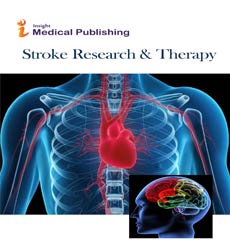Abstract
Incidence of depression in different brain tumor pathologies
The neuropsychiatric issues in brain cancer patients are reported from the disease process itself or from the cancer therapies. We conducted an epidemiological study to estimate the prevalence of depression in brain tumor patients in different tumor types classified by World Health Organization (WHO). Pakistani brain tumor patients were included in this study as subjects from Jinnah Hospital, Lahore. The depressive symptoms were assessed by examining all patients with the help of a reliable diagnostic questionnaire under the supervision of a neurologist. The results indicated a higher incidence rate (80%) of depression in brain tumor patients. Almost 25% Pituitary adenoma (WHO grade III), 20% Glioblastoma (WHO grade IV), 6% diffused Astrocytoma (WHO grade II), 8% Anaplastic Astrocytoma (WHO grade III), 2% Ependymoma (WHO grade III), 4% Oligodendroglioma (WHO grade II) and 16% Meningioma (WHO grade II/III) brain tumor cases presented depressive illness. We identified high percentage of depression in Pituitary adenoma (WHO grade III) and in Glioblastoma multiform (WHO grade IV) as compared to other tumor pathologies. Neuropsychiatric issues emerging from brain tumors can be mitigated timely if earliest diagnosis is made. Pituitary adenomas often present with the neuropsychiatric symptoms. Depression from Glioblastoma has also been reported. These results are useful in dealing with depression in paients with different brain pathologies. This study encourages oncologists to provide psychological and emotional support to brain tumor patients during treatment and follow-up.
Author(s):
Saman Shahid
https://betsatgirisi.com https://bettilte.com https://vegabete.com https://kanyongiris.com https://matgiris.com https://celtabetegiris.com https://hilbetegiris.com https://melbete.com https://kinbettinge.com https://wipbett.com https://pusulabetegiris.com https://superbahiss.com https://lidyagiris.com https://holiganbete.com https://1xbetgiriss.com https://asyabahise.com https://jetbahise.com https://betdoksana.com https://betebetle.com https://betgramagiris.com
Abstract | PDF
Share this

Google scholar citation report
Citations : 63
Stroke Research & Therapy received 63 citations as per google scholar report
Abstracted/Indexed in
- Google Scholar
- Secret Search Engine Labs
Open Access Journals
- Aquaculture & Veterinary Science
- Chemistry & Chemical Sciences
- Clinical Sciences
- Engineering
- General Science
- Genetics & Molecular Biology
- Health Care & Nursing
- Immunology & Microbiology
- Materials Science
- Mathematics & Physics
- Medical Sciences
- Neurology & Psychiatry
- Oncology & Cancer Science
- Pharmaceutical Sciences

